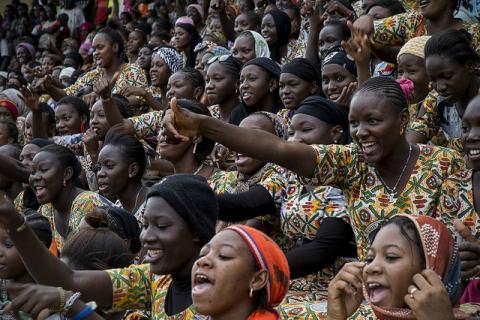
Women continue to suffer significant economic, political, legal, social and cultural disadvantages in almost all countries. Evaluation strategies must balance the need to address these gender realities, while also focusing on the broader goals of understanding the complex relations between the sexes, areas where some groups of men may also suffer disadvantages, and how these affect development objectives. In order to address this issue more in-depth, a task force from the Evaluation Cooperation Group led by the African Development Bank Group’s Independent Development Evaluation (IDEV) conducted a reflection and produced a reference document on basic tools and techniques to cover the minimum requirements for incorporating gender into standard independent evaluations, but also on more advanced tools and methods for deeper gender-responsive evaluations (GRE).
The purpose of this ECG Reference Document is to provide practical approaches for Independent Evaluation Offices (IEOs) of multilateral development institutions to strengthen the treatment of gender equality and women’s empowerment in their evaluation programs, and more specifically in evaluations of projects. It is intended for three main audiences: staff who are relatively new to development evaluation, and particularly to gender evaluation; staff with more experience in development evaluation as well as gender evaluation; and managers who must lead the gender evaluations.
The document is organized in two parts. Part I contains five chapters laying out the proposed approach and methodology (see below for more details) and Part II presents three case studies illustrating how the proposed evaluation framework and methodologies could be applied in typical independent evaluation contexts. There are also nine appendixes that provide more detailed material relating to the topics covered in the main report.
As a follow-up to the issuance of the reference document, the ECG organized a workshop around the theme “Gender in evaluation”, which brought together evaluators from various multilateral development institutions in Washington, DC from 27th to 28th September 2017. The sessions, hosted by the World Bank Group’s Independent Evaluation Group (IEG), stimulated a discussion on the approaches, challenges, and solutions to deliver gender-responsive evaluations, and about the role independent evaluation can play in moving forward the gender agenda within each institution. This workshop also served as the first face-to-face meeting of practitioners from the newly established ECG Community of Practice on gender in evaluation.
Synopsis of Part I of the Reference Document
Chapter 1 addresses gender within the IEO evaluation framework. It stresses the importance of gender in all IEO evaluations while recognizing the unique challenges and opportunities presented by the parameters within which IEO evaluations are conducted. The chapter also emphasizes the need to demonstrate the value added of gender-focused evaluations.
Chapter 2 provides guidelines for deciding which project-level evaluations should address gender and with what level of intensity.
Chapter 3 reviews the main evaluation approaches that can be used for GRE. This can draw on all standard evaluation designs, but all GRE evaluations apply a distinct gender responsive lens – including the application of a gender analysis framework.
Chapter 4 discusses the data collection tools that can be used for each design, and a table summarizes the methods and offers tips on how to avoid common pitfalls and strengthen applications.
Chapter 5 discusses the important roles of the manager of the gender-responsive evaluations. Some of these roles include: (i) ensuring the gender focus is aligned with agency objectives, ensuring the evaluation addresses the key gender-related questions of concern to key stakeholders, and (ii) team-building to incorporate effectively new professional expertise.

